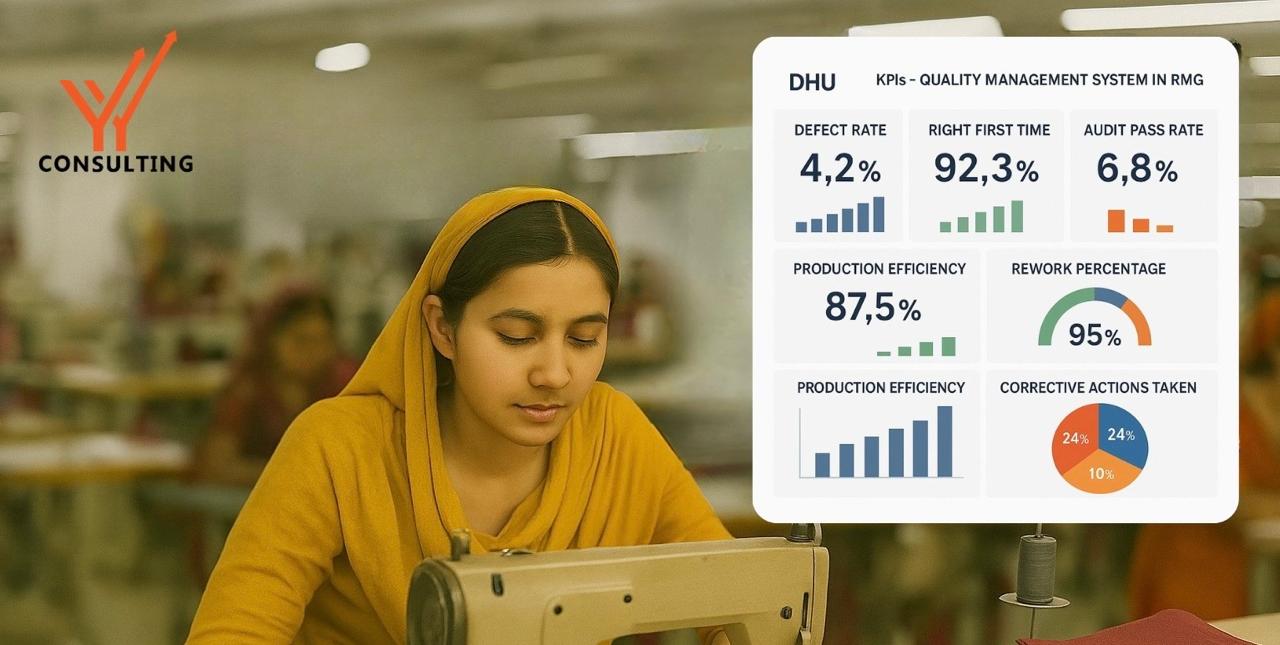Bangladesh’s Ready-Made Garment (RMG) industry has long been a pillar of the country’s economic growth, contributing over 80% of total exports and employing millions. However, as global fashion brands demand more accountability, traceability, and consistent product quality, the RMG sector is facing mounting pressure to evolve beyond traditional manufacturing processes. Enter Quality Management Systems (QMS) and real-time Management Information Systems (MIS) — two pivotal tools that are transforming quality standards in the sector.
The Rising Need for Structured Quality Management
In recent years, international buyers have raised their expectations. Today, price alone isn’t enough to win contracts; quality, compliance, transparency, and speed matter just as much — if not more. Brands are scrutinizing factories more closely, especially after rising consumer demand for sustainable, defect-free, and ethically produced garments.
Unfortunately, many factories in Bangladesh still rely on manual workflows, handwritten records, and reactive quality control. These outdated methods not only slow production but also increase error rates, leading to higher rejection percentages and a lack of visibility across production lines. That’s where QMS and real-time MIS come in.
What is a Quality Management System (QMS)?
A QMS is a formalized system that documents processes, procedures, and responsibilities to achieve quality objectives consistently. It enables manufacturers to reduce errors, increase customer satisfaction, and comply with international standards like ISO 9001.
The three core pillars of QMS are:
- Standardization – Ensures every product is made under controlled parameters.
- Traceability – Allows real-time tracking of every unit, from input to final QC.
- Defect Reduction – Prevents errors before they escalate through early-stage quality checkpoints.
By implementing QMS, factories can move from reactive to proactive quality management — reducing defects, boosting first-time quality (FTQ), and improving relationships with buyers.
Real-Time MIS: A Digital Game Changer
While QMS provides the structure, real-time MIS delivers the speed and visibility needed to stay agile. A real-time MIS digitizes production data, transforming static spreadsheets and delayed reporting into live dashboards with actionable insights.
These dashboards allow production managers and line leaders to:
- Monitor rejection rates and FTQ in real time
- Identify bottlenecks immediately
- Make quick adjustments on the floor
- Ensure compliance with quality protocols
With MIS, factories can bridge the gap between operational decisions and quality outcomes — turning data into an everyday tool for excellence.
What Happens When QMS + MIS are Combined?
The synergy of QMS and real-time MIS creates a culture of data-driven quality excellence. Factories implementing both have reported:
- 30% reduction in product rejections
- 95% on-time delivery rates
- Greater buyer trust and retention
- Seamless communication between production and quality control teams
This dual-layered approach helps manufacturers not only meet quality expectations but exceed them, laying the foundation for long-term competitiveness.
Groyyo’s Role in Bangladesh’s Quality Revolution
At the heart of this transformation is Groyyo, a smart manufacturing and supply chain platform that empowers garment factories to digitize operations and elevate product standards.
Groyyo has already supported 50+ factories across Bangladesh in implementing digital QMS and MIS systems — equipping them with tools to achieve world-class quality at scale.
Key highlights of Groyyo’s impact include:
- 30% reduction in rejection rates through preventive quality frameworks
- Deployment of real-time digital quality playbooks for line leaders, tailored to product categories
- Customized MIS dashboards that give factory owners and QA teams live data on defect trends, audit logs, and performance metrics
- 95% on-time delivery achievement by select factories through better production planning and issue resolution
- Hands-on training for factory quality teams to ensure smooth adoption and long-term independence
One standout case involved a partner factory struggling with high FTQ issues and late deliveries. With Groyyo’s intervention, the factory saw a 28% improvement in first-time quality within just 90 days, while cutting inspection time by 40%.
Groyyo’s approach is not just tech-first — it’s people-first, ensuring teams are supported through training, onboarding, and performance feedback loops.
Overcoming the Challenges of Implementation
Despite the benefits, transitioning to a digital QMS + MIS environment isn’t without hurdles. Common challenges include:
- Resistance to change from factory floor staff
- Lack of internal technical expertise
- Initial investment apprehensions
Groyyo addresses these by offering plug-and-play systems, extensive training support, and personalized implementation roadmaps. By aligning factory owners, supervisors, and QA teams, they help instill a culture where quality isn’t a department — it’s a shared mission.
Measuring Success with KPIs
Success in quality transformation needs to be tracked — and Groyyo makes this easy through robust KPI frameworks. Key indicators include:
- FTQ (First-Time Quality) percentage
- Rejection rates per line
- Audit failure rates
- Delivery timelines
- Corrective action cycle time
These metrics give factories and buyers confidence that improvements are real, sustained, and scalable.
The Road Ahead: Quality as a Competitive Advantage
As Bangladesh aims to move up the value chain and compete with manufacturing hubs like Vietnam and China, quality will be the defining edge. Compliance-driven production is no longer optional — it’s the cost of doing business globally.
For factories willing to adopt QMS and MIS, the rewards are substantial: stronger buyer relationships, higher margins, and access to premium markets. For those who delay, the risks include shrinking orders, increased costs from defects, and brand reputation damage.
Conclusion: Partnering for Progress
The path to higher quality isn’t just about tools — it’s about mindset. And with players like Groyyo offering scalable, tech-enabled solutions, the RMG sector in Bangladesh is more equipped than ever to lead with quality.
Groyyo is more than a technology provider; it’s a partner in transformation — empowering factories with the systems, training, and real-time insights needed to deliver world-class quality, consistently.
Because in today’s fashion industry, quality isn’t just a benchmark — it’s your brand.

Divya Mohan
General Manager (International Business)
divyamohan@groyyo.com


Leave a Comment